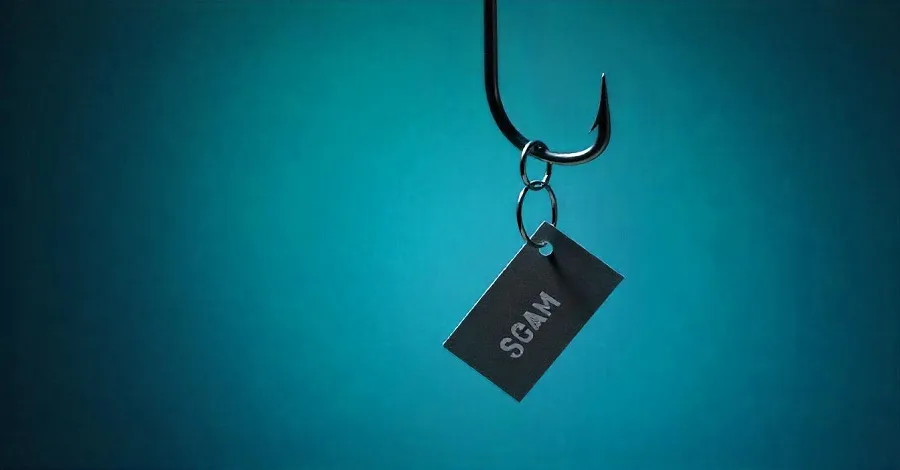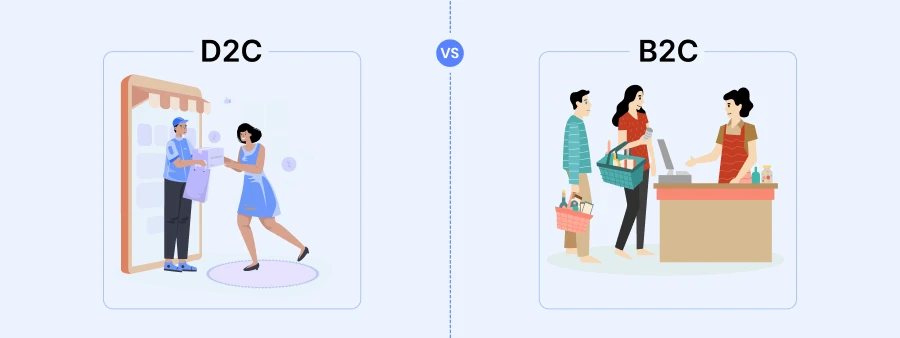20 Examples of Out-Of-Office Messages with Effective Tips
- July 6, 2023
- 22 mins read
- Listen
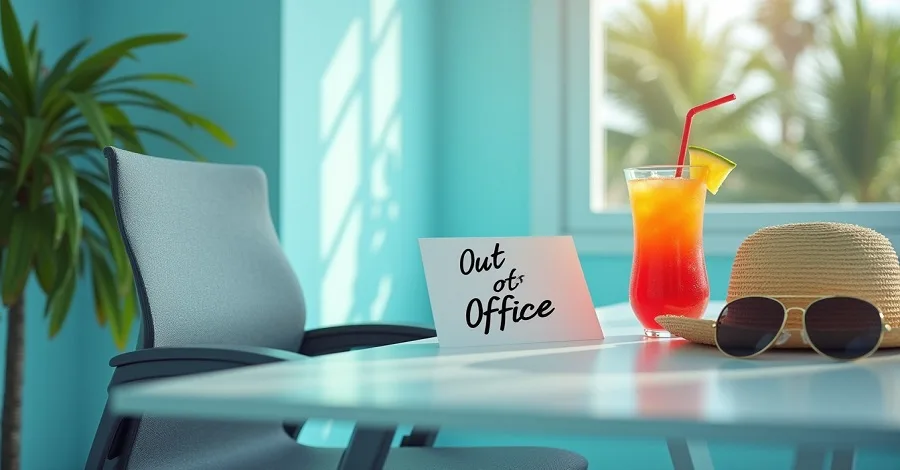
Table of Content
We all need a break sometimes. Don’t we? Even from our inbox. That’s where the out-of-office message swoops in. It is just to save the day. But did you know it can be more than just an “I’m away” note? What do you think? If you’re looking to find the best OOO messages that are exceptional and professional. You got the right article.
In this comprehensive article, I’ll disclose the secrets to crafting an out-of-office message. It is not only informative. Also, fun and effective. It’s time to reclaim your inbox. Take control of your digital downtime! Is this something interesting? So, let’s dive in.
What is an Out-of-Office Message?

An out-of-office message is an automated reply sent by email when someone is temporarily away from work or unavailable. It is like a digital sticky note. Basically, it tells people that you’re not around to answer emails. It’s set up in your email settings and pops up automatically. When someone sends you a message while you’re out. Let’s let them know when you’ll be back. Who to contact in your absence? It’s your way of saying, “Hey, I’m not ignoring you, I’m just taking a break!”
Do you still have any confusion? What is an OOO message and what does it look like in professional content? Here’s a simple example:
When Do You Use an Out-Of-Office Message?
You use an out-of-office message whenever you’re not available to handle emails for an extended period. If you’re on vacation, attending a conference, out sick, or unable to respond promptly. You can set an OOO message to let the people know why you’re not available.
It’s a courteous way to inform others of your absence. And, provide alternative contacts or information about when you’ll be back.
Why is OOO Message Crucial?

You know that an out-of-office message is a polite and professional approach. It plays a key role in managing expectations and communicating your availability to colleagues and clients. It helps prevent frustration and misunderstandings. But, how? It simply lets others know when they can expect a response from you. And, it ensures that urgent matters can be directed to someone who can address them in your absence.
There is no way to ignore that it promotes efficient communication. Also, it helps maintain good relationships within your professional network. So, next time where you go out of the office, don’t forget to leave an OOO message.
Essential Elements to Include in an Out-Of-Office Email Message
It is obvious to know the essential elements to craft a compelling out-of-office message. What if you don’t know? It might be confusing. Without a clear idea and knowledge, you often will get stuck at a point. That is why I am going to tell you all the key things to know to craft an amazing OOO message. No more waiting. No more guesswork.
Let’s find out the key elements of an out-of-office email message:
- Greeting: Start with a friendly greeting. For example, “Hi” or “Hello.”
- Notification of Absence: Yes, you’ll have to clearly state that you are out of the office. And, unable to respond to emails.
- Duration of Absence: It is a good idea to specify the dates or duration of your absence. Including the date you’ll return.
- Alternative Contact Information: You should provide contact details for someone who can assist in your absence. If applicable.
- Response Expectations: You need to clarify whether the sender should expect a delayed response. If their email will be addressed upon your return.
- Emergency Contact Information: It is a vital step. Don’t forget to include instructions for urgent matters or emergencies. Who to contact or where to find additional assistance.
- Professional Closing: You need to end your OOO message with a professional closing. For example, “Best regards” or “Thank you.”
- Signature: Finally, you need to sign off with your name and any relevant job title or position. But, why? Because it will build your credibility.
Things to Avoid When You Create an OOO Message
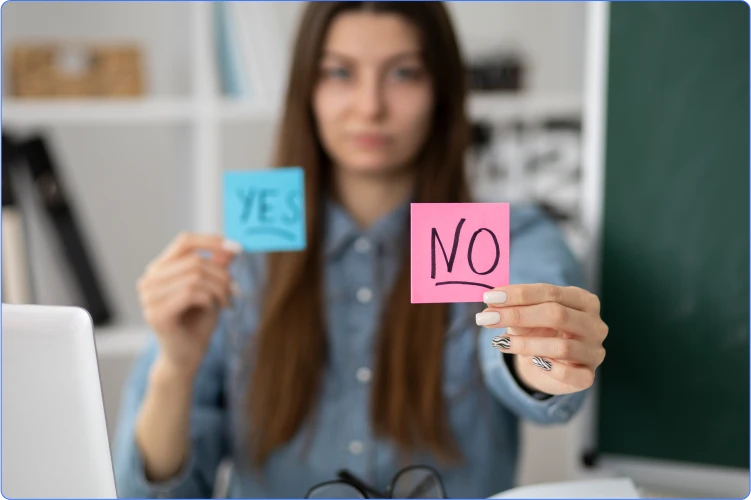
When crafting an out-of-office (OOO) message, you need to avoid certain pitfalls to maintain professionalism and clarity. Let’s take a look at some common things you need to avoid:
1. Overloading with Detail
Don’t put all the information OOO message. Try to make it short, clear, and snappy. It’s important to provide relevant information. For instance, too much detail. It can overwhelm the reader. Also, it makes the message less effective.
So, stick to the essentials such as your absence dates, alternative contacts, and when the sender can expect a response. No unnecessary explanations or background information is required.
2. Negativity
Your out-of-office message should maintain a positive and professional tone. It is always recommended to avoid phrases that convey negativity or apology. This can create a sense of inconvenience for the sender. Instead, focus on conveying a friendly and helpful attitude. You need to reassure the sender that their email will be addressed in due course.
3. Avoiding Jargon
I’m pretty sure that not everyone will be familiar with technical terms or industry-specific jargon. Then, how to deal with them? What measures should you take? You must ensure clarity and understanding. You need to use simple language that is accessible to a wide audience. This will help prevent confusion. And, it will ensure that your message is easily understood by all recipients.
4. Avoiding Specific Timeframes
If you offer a specific timeframe for when you or your point of contact will reply to emails. It’s important to avoid making promises. You may not be able to keep it. Instead, provide a general timeframe.
Also, you can indicate that emails will be addressed upon your return. This avoids setting unrealistic expectations. And, it prevents disappointments when you cannot respond as quickly as anticipated.
5. Proofreading
Professionalism is quite important for any role. But, do you know grammatical errors and typos can detract from the professionalism of your out-of-office message? It may even lead to misunderstandings.
Before activating your message, take the time to carefully proofread it for any mistakes. This includes checking for spelling errors, punctuation mistakes, and grammatical issues. Most importantly, a polished and error-free message will convey professionalism and attention to detail.
6. Setting Expectations
It is one of the most important aspects of an out-of-office message. You always have to set clear expectations for the sender. Let them know when they can expect a response from you. Don’t forget to provide alternative contacts for urgent matters.
Basically, this helps manage the sender’s expectations. Make them believe that important issues are addressed promptly. Even in your absence.
What Should a Professional Out-Of-Office Reply Say?

Are you still wondering what a professional writes in an auto-reply message or OOO message? For a professional out-of-office reply, it’s essential to convey acknowledgment of receipt. While clearly stating your absence from the office.
You need to specify the duration of your absence. It can be a date of your return, and provide alternative contact information if necessary. Most importantly, you should manage expectations. There will be a delay in responding to emails or if they will be addressed upon your return.
Besides, you’ll have to express gratitude for the sender’s email. Plus, maintain a professional tone throughout closing with a courteous sign-off.
For example, your name or relevant job title. This comprehensive approach ensures that recipients are informed of their absence. It helps to manage their expectations accordingly. And, maintaining effective communication in your absence.
20 Best Out-Of-Office Message Example Templates
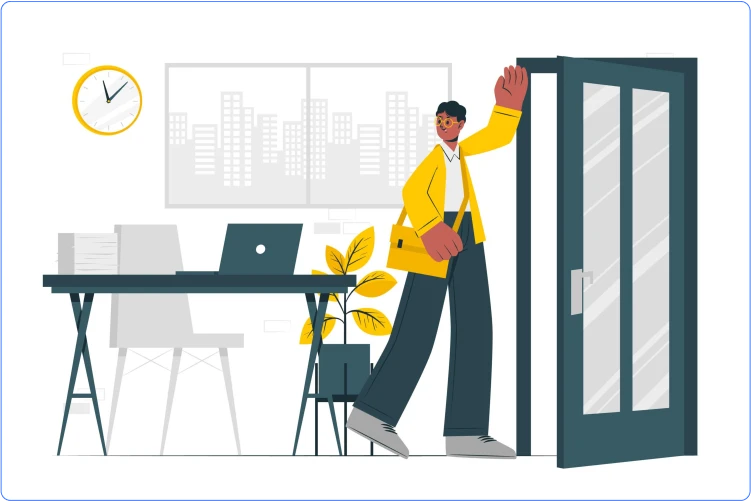
These messages inform correspondents about the recipient’s absence. Also, provide alternative contacts for urgent matters. Let’s take a look at some of the best OOO message example templates.
1. Vacation
2. Business Trip
3. Sick Leave
4. Maternity/Paternity Leave
5. Conference or Training
6. Jury Duty
7. Personal Emergency
8. Remote Work
9. National/Public Holiday
10. Family Event
11. Mental Health Break
12. Professional Development
13. Extended Vacation
14. Flexible Work Schedule
15. Company Retreat
16. On Sabbatical Leave Until
17. Working on a Special Project
18. Personal Development Time
19. Technology Issues
20. Family Emergency
17 Pro Tips to Craft an Outstanding Out-of-office Message
Creating a professional out-of-office message is not a nightmare anymore. But, what to do to make it easier and simple? The answer is simple! All you need to create a professional and effective out-of-office message that communicates your absence.
Plus, you need to make sure that your OOO message manages expectations for those reaching out to you.
- Your message should be clear and concise. In this case, you need to keep your message brief and to the point. Don’t forget to provide essential information without unnecessary details.
- You’ll have to specify the dates of your absence and when you’ll return. Also, you should provide any alternative contacts or resources available in your absence.
- While it’s okay to inject some personality. You need to ensure your message remains professional and courteous.
- Clear communication is key. In particular, when the sender can expect a response. You can guide who they should contact for urgent matters.
- Thank the sender for their message. Also, express appreciation for their understanding during your absence.
- You need to avoid grammatical errors and typos. So, proofread your message before setting it up.
- You can offer assistance or resources for common inquiries. If applicable you can help the recipients find the information they need.
- If appropriate, personalize your message with a brief note related to your absence. For example, mentioning a vacation destination or reason for the absence.
- Let senders know when they can expect a response from you. This helps manage their expectations and reduces unnecessary follow-up emails.
- Guide what constitutes an urgent matter and who to contact in such cases. This assures important issues will be addressed promptly in your absence.
- You have to confirm that your tone remains professional and aligns with your organization’s culture.
- If you work across different time zones or with international clients, don’t forget to be mindful of cultural nuances in your message.
- If you also receive phone calls for work, make sure your voicemail greeting reflects your out-of-office status and provides alternative contact information.
- While it’s fine to mention a brief reason for your absence, you should avoid sharing too much personal information in your message.
- Make sure that your out-of-office message is accessible to all recipients, including those who may use screen readers or other assistive technologies.
- If you interact with different groups (e.g., clients, colleagues, vendors), you should consider customizing your message to suit their specific needs or expectations.
- If your plans change or your return date shifts, remember to update your out-of-office message accordingly to avoid confusion.
Conclusion
Out-of-office messages may seem like a mundane aspect of professional communication. Isn’t it? But, why it feel like this? It serves a crucial role in managing expectations and maintaining effective communication during periods of absence.
If you want to craft a clear and concise message, you need to set expectations for response times. You should provide alternative contacts when necessary. However, there is something more important to ensure. You’ll have to ensure that your absence doesn’t hinder the flow of work or communication.
So, next time you’re setting up your out-of-office message, remember the importance of clarity, professionalism, and courtesy. Also, keep one thing in mind, it is your responsibility to inform your professional network and be well-supported. Happy communicating, even when you’re out of the office!
Frequently Asked Questions
A good auto-reply message is clear, concise, and provides relevant information to the sender. It should inform the sender that you’re currently unavailable and when they can expect a response. In this case, you need to include alternative contacts or resources for urgent matters. It’s essential to maintain a professional tone. You need to ensure that the message is grammatically correct and free of spelling errors.
Yes, saying “out of office” is a common and acceptable way to indicate that you’re not available. It’s widely understood in business communication contexts. Plus, it conveys the message that you’re away from your usual workspace or not actively monitoring your emails.
This is an automated message that is sent in response to incoming emails. In particular, you’re unable to respond personally. It should include essential information such as the duration of your absence, alternative contacts if necessary, and when the sender can expect to hear back from you. When you’re setting automatic replies, you need to be courteous and professional.
Sure! If you’ll be away from work or unable to respond to emails promptly. You need to set an out-of-office message. It plays an imperative role in managing expectations and lets people know when they can expect to hear back from you. There is no complexity. Simply include the dates of your absence, and mention who to contact in your absence for urgent matters.


